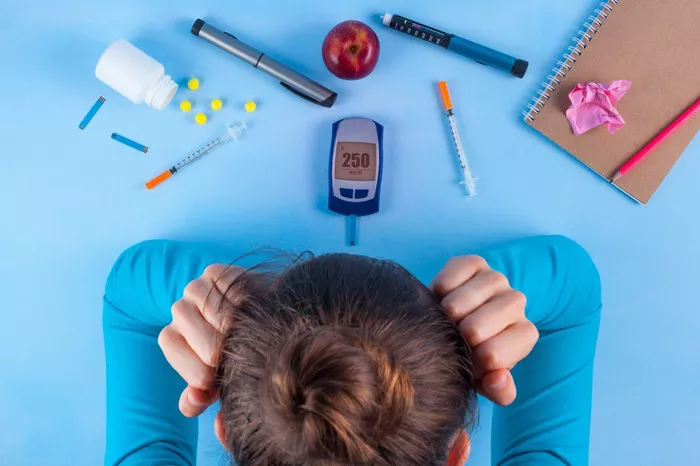Juvenile diabetes, also known as type 1 diabetes, is a chronic autoimmune condition characterized by the immune system’s attack on the insulin-producing beta cells in the pancreas. This results in little to no insulin production, leading to high blood sugar levels.
Juvenile diabetes typically manifests in childhood or adolescence, hence the term “juvenile.” However, it can occur at any age. It is a lifelong condition that requires continuous management to prevent complications and maintain overall health.
Causes and Risk Factors
The exact cause of juvenile diabetes is not fully understood, but it is believed to involve a combination of genetic predisposition, environmental triggers, and autoimmune factors. Genetic susceptibility plays a significant role, as individuals with certain genetic markers are more likely to develop the condition.
Environmental factors, such as viral infections or exposure to certain toxins, may trigger an autoimmune response in genetically predisposed individuals, leading to the destruction of beta cells in the pancreas.
Risk factors for juvenile diabetes include a family history of the condition, genetic susceptibility, and exposure to viral infections during childhood.
Symptoms and Diagnosis
Common symptoms of juvenile diabetes include increased thirst, frequent urination, unexplained weight loss, fatigue, and blurred vision. These symptoms may develop rapidly over a short period, sometimes leading to a sudden onset of diabetic ketoacidosis (DKA), a life-threatening complication.
Diagnosis of juvenile diabetes typically involves blood tests to measure blood glucose levels, HbA1c levels (a marker of long-term blood sugar control), and autoantibodies associated with the autoimmune destruction of beta cells.
Treatment and Management
The primary treatment approach for juvenile diabetes is lifelong insulin therapy to replace the deficient hormone. This may involve multiple daily injections or the use of an insulin pump to deliver insulin continuously.
Blood sugar monitoring is essential for managing juvenile diabetes, as it allows individuals to track their blood glucose levels and adjust insulin doses accordingly. Carbohydrate counting and meal planning help regulate blood sugar levels and ensure balanced nutrition.
In addition to insulin therapy, other components of diabetes management include regular physical activity, medication adherence (if additional medications are prescribed), and periodic medical check-ups to monitor overall health and screen for complications.
Complications
Potential complications associated with juvenile diabetes include hypoglycemia (low blood sugar), hyperglycemia (high blood sugar), diabetic ketoacidosis (DKA), and long-term complications affecting the eyes (diabetic retinopathy), kidneys (diabetic nephropathy), nerves (diabetic neuropathy), and cardiovascular system (heart disease, stroke).
Psychosocial and Emotional Impact
Living with juvenile diabetes can have significant psychosocial and emotional implications. Managing a chronic condition requires constant attention to diet, medication, and blood sugar monitoring, which can be challenging and stressful. Coping with lifestyle changes, addressing stigma, and seeking support from healthcare providers, family, and peers are essential aspects of managing the emotional impact of juvenile diabetes.
Support Resources
Numerous support resources are available for individuals with juvenile diabetes and their families, including diabetes education programs, support groups, online communities, and advocacy organizations. These resources provide information, guidance, and emotional support to help individuals navigate the challenges of living with diabetes.
Research and Innovation
Recent advancements in juvenile diabetes research have focused on potential breakthroughs in treatment modalities, technology, and prevention strategies. This includes the development of artificial pancreas systems, continuous glucose monitoring devices, and novel insulin formulations aimed at improving blood sugar control and quality of life for individuals with juvenile diabetes.
Conclusion
Juvenile diabetes, or type 1 diabetes, is a complex and challenging condition that requires lifelong management. By understanding the causes, symptoms, treatment options, and potential complications of juvenile diabetes, individuals can take proactive steps to effectively manage the condition and maintain overall health and well-being. With ongoing research and innovation, there is hope for improved treatments and outcomes for individuals living with juvenile diabetes in the future.
Related Topics:
If You Have Type 1 Diabetes, What Should Do Now?

























